Through cats and community, Tucson woman builds a story of hope
After rescuing a colony of feral cats in Tucson, Courtney Gustafson turned her life-changing experience into a memoir that explores community, resilience and the power of small acts of care.
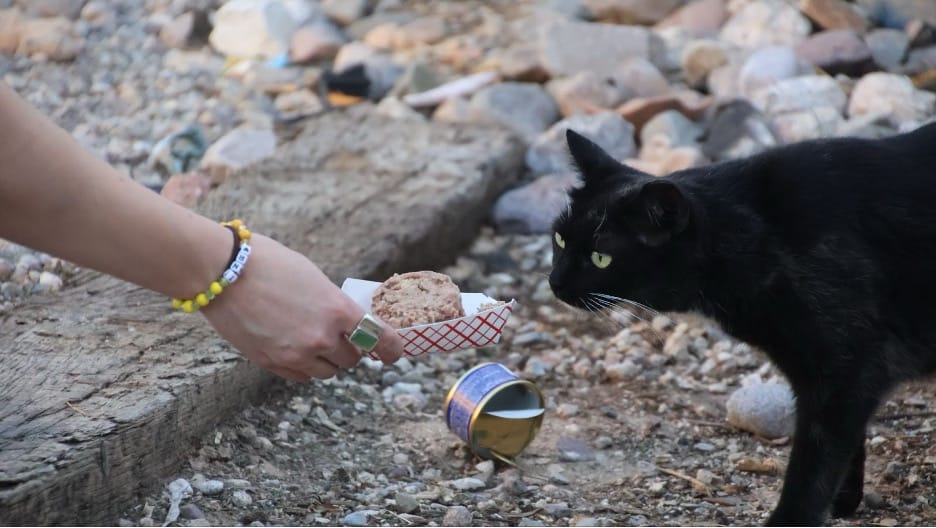
When Courtney Gustafson signed the lease on her new home on the east side’s Poets Square Drive, it didn’t mention any unexpected roommates — none of whom would be paying rent.
That’s because they were cats. So many cats. About 30 of them, to be precise.
Before the colony came to take over her life and change the trajectory of her career, Gustafson was working at the Community Food Bank of Southern Arizona, writing and handling communications.
She always had a passion for writing and planned one day to write books, but she never expected her big break would come through her efforts to help these dozens of new furry friends and the successes and heartaches she experienced along the way.
Her first book, “Poets Square: A Memoir in Thirty Cats,” hits bookstores Tuesday. Gustafson celebrated its release Saturday at Bookmans with an author talk and signing attended by about 150 of her biggest fans.
While the book is about cats, it’s also about Gustafson’s own life and addresses serious societal issues.
"One of my early editors said it's like 'Trojan cats' — you come for the cat stories, and you stay for the hard truths underneath," Gustafson said.

The book came out of years of late nights spent driving around Tucson with a car full of trapped cats, reflecting on the broken systems Gustafson witnessed and the small, stubborn hopes that kept her going.
“Poets Square” uses Gustafson’s experiences with the cats as vehicles to explore deeper conversations about mental health, community care, homelessness and resilience.
And given the crowd at Saturday’s event, it seems her message will reach plenty of readers, thanks in part to the Poets Square cats’ unexpected social media fame.
After discovering the colony and armed with her cellphone and a collection of cat traps, Gustafson began sharing her adventures on TikTok and Instagram.
Videos of the cats in her colony, including Lola, Goldie, Monkey and the fan-favorite Sad Boy, quickly won the hearts of followers all over the world. In the years since, their fan base has grown to more than one million TikTok followers and another 160,000 on Instagram.
Before moving into the home, Gustafson had no experience caring for feral cats and didn’t know the best way to help. While she initially felt alone and overwhelmed in her efforts to take care of the colony, she eventually found a community and learned along the way about the process of trapping, neutering and returning feral cats to the community.
The process, called TNR, has demonstrated success in keeping feral cat populations under control but is relatively new to Tucson. The practice has become more common over the past decade, but prior to that, stray cats used to be captured and euthanized.
Through her work and postings on social media, Gustafson showed her followers that anyone could make a difference, even just one cat at a time. And her followers weren't just watching; they were learning.

Through Gustafson’s trial and error, they saw what it meant to humanely care for a feral colony and build a system of compassion for these often overlooked cats.
"I could trap 24/7 for the rest of my life and never really make a dent," she said.
Tucson is in the middle of kitten season, a time of year when countless stray cats are born on the streets. These babies are often fearful of humans and in need of medical care, so trapping them isn't easy.
Gustafson is one of doznes of community volunteers who spend long nights in neighborhoods, working patiently to catch and help each cat.
But even with dozens of people working to help keep these populations under control, there’s still plenty of work to be done, with Gustafson reminding people that even trapping just one or two cats in their own backyard can make a real difference.
Through her platforms, Gustafson not only taught the world about the TNR process, she also made the work feel possible for anyone, ensuring a better future for furry friends in communities across the globe.
Her followers share photos of cats they’ve trapped, with Gustafson saying she’s amazed by the number of strangers online who knew her cats by name, checked in on them, donated supplies and shared in her worries and heartache.
"It turned into this massive support system, both online and eventually in real life," Gustafson said.
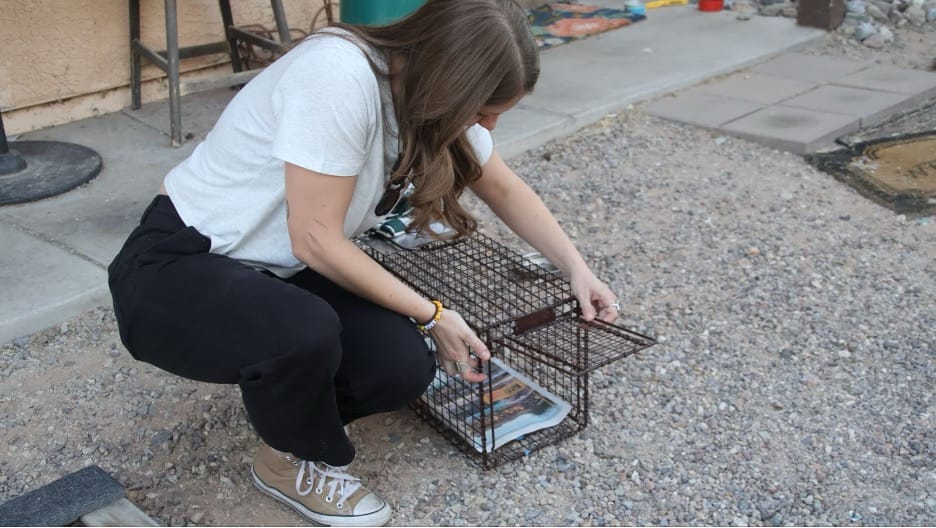
As the cats’ popularity grew, Gustafson wanted to use her platform for good and began partnering with organizations including the Humane Society of Southern Arizona and Santa Cruz Veterinary Clinic, helping raise more than $50,000 for spay and neuter programs.
After she was laid off from her Food Bank job a few years ago, Gustafson decided to take the leap and try to shape her future around her passions.
"I thought, 'Okay, I have two months of severance. I'm going to try to write a book,'" she said. "The cats are my boss now."
Despite the cats’ social media fame, Gustafson still had to do the work to find an agent and land a book deal. And even now that the book is complete, they remain Gustafson’s bosses.
She still spends her nights trapping, fostering and supporting TNR efforts across Southern Arizona, but she’s now backed by a growing network of volunteers that she helped inspire.
She said her favorite moments aren't the viral sensations but the small, everyday acts of kindness, from a neighbor leaving out a cozy blanket or box to offering a hungry cat a piece of hot dog or two.
"People will give cats potato salad or whatever they have, just trying to help," she said. "It's the most charming thing."
At its heart, “Poets Square” is a book about how small acts of care can ripple outward, building something resilient.
"Everyone loves cats," Gustafson said. "And through them, maybe we can start seeing each other a little more clearly too."
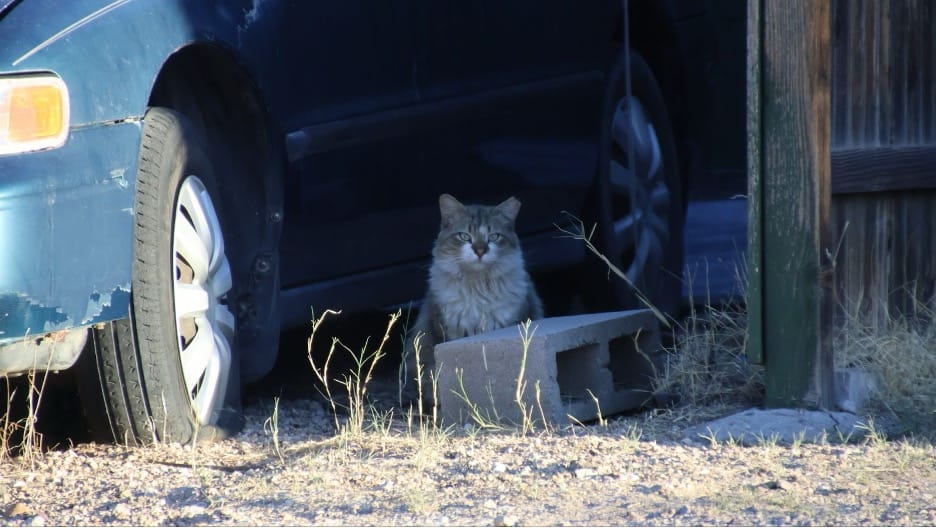

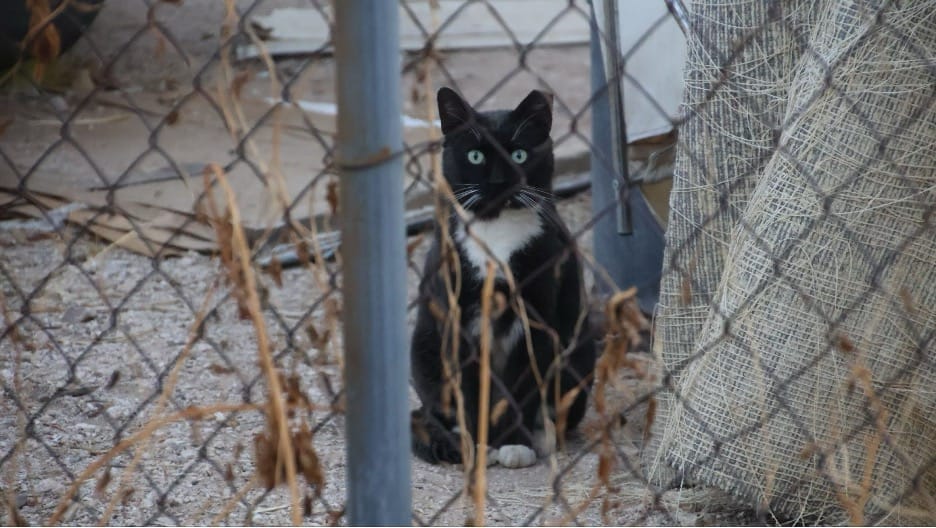

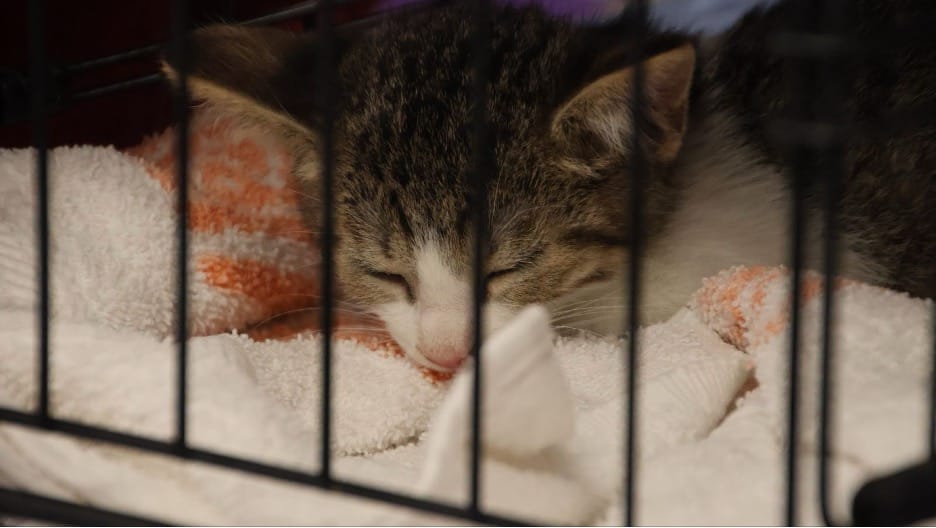
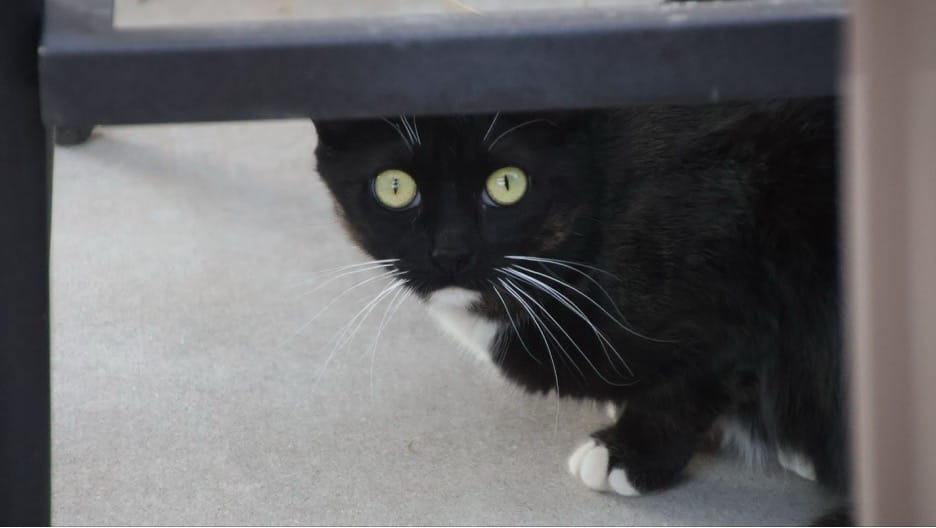
Photos by Topacio "Topaz" Servellon.
Angelina Maynes is a University of Arizona alum and reporter with Tucson Spotlight. Contact her at angelinamaynes@arizona.edu.
Tucson Spotlight is a community-based newsroom that provides paid opportunities for students and rising journalists in Southern Arizona. Please support our work with a paid subscription.




